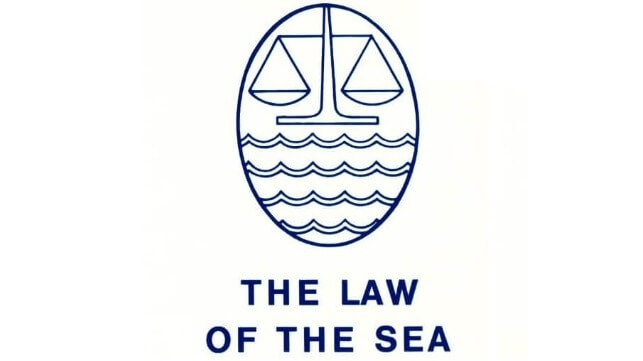Is it Time to Amend the Law of the Sea?

“The dark oceans were the womb of life: from the protecting oceans life emerged.” These were the words in a prophetic speech by Arvid Pardo to a UN meeting in 1967. It was amongst the first sessions convened to deliberate creation of a body of laws to govern the global oceans. It culminated in the modern United Nations Convention on the Law of the Sea (UNCLOS), as adopted by the UN in 1982. Arvin Pardo would go on to earn the credit as the father of UNCLOS.
Since then, UNCLOS remains the most far-reaching treaty ever negotiated under the auspices of the UN, and a harbinger of a global attempt to regulate the maritime domain.
While UNCLOS is fairly settled on many questions of governance, contemporary challenges such as climate change, protection of high seas fisheries and management of strategic ocean spaces – like the South China Sea - are prompting a debate over reviewing the established law.
For example, climate change poses considerable challenges in the future application and interpretation of the UNCLOS.
“Whilst this is not a completely new dynamic - in that the changing ocean and coastline conditions have always had to be addressed by the law of the sea - rapid climate change and its impact upon the oceans has the potential to impact upon nearly all aspects of ocean activity. Particularly, its unpredictable consequences for many coastal states,” writes Donald Rothwell and Tim Stephens in their book, The International Law the Sea.
This concern has jolted Pacific States from Kiribati to Tuvalu to map their remote islands in a bid to claim permanent exclusive economic zones (EEZs), stretching 200 nautical miles, irrespective of future sea level rise. As global warming leads to rising seas, Pacific nations fear their islands could eventually be flooded, shrinking their EEZs and their rights to fishing and seabed resources within their boundaries. Therefore, they are trying to lock in the existing zones now.
A 2018 resolution by The International Law Association supported the vulnerable islands, arguing that any maritime zones determined under UNCLOS “should not be required to be recalculated should the sea level change affect the geographical reality of the coastline.”
The enforcement and dispute resolution mechanism of UNCLOS has been brought to question in the wake of rising tension in South China Sea. China is a party to UNCLOS after it ratified the treaty in 1996. This notwithstanding, China has refused to accept a major ruling by the Permanent Court of Arbitration in the Hague, which found its claims in the South China Sea inconsistent with UNCLOS. The five-judge tribunal hearing the case was established under the compulsory dispute settlement provisions of UNCLOS, and its ruling should be final and legally binding to all parties concerned. Unfortunately, due to lack of an enforcement mechanism, China can still assert and pursue its claims in the South China Sea, even if the legal basis for such activity is untenable. In light of this, international law analysts say that a dilemma occurs on the question of whether China should withdraw from UNCLOS.
The effectiveness of UNCLOS dispute resolution mechanism is also covered in an ongoing House of Lords inquiry in UK, which is currently examining how UNCLOS is fit for purpose in the 21st century.
Meanwhile, in view of the ever-increasing human rights violations at sea, especially for seafarers and fishermen, does UNCLOS provide for their protection?
This is a relatively new question for legal scholars. Usually, whenever a discussion of human rights at sea and its connection to UNCLOS arises, it is dismissed because it is addressed in discrete sections of the treaty – specific segments addressing modern slavery, human trafficking, search and rescue at sea - supplemented by 2006 Maritime Labour convention and IMO guidelines.
Elizabeth Mavropoulou, head of Research at Human Rights at Sea, suggests that this perspective reflects a narrow understanding of human rights at sea, incorrectly equating it to minimum labor and welfare standards onboard vessels. She recommends that human rights at sea should be a central theme of UNCLOS, alongside other pertinent questions on ocean governance.
Indeed, amending UNCLOS to address some of the emergent issues could be a genuine challenge. However, we must also consider that UNCLOS as drafted may not be up to date with our fast-changing world, given the modern realities of climate change and geopolitical rivalry.
No comments:
Post a Comment